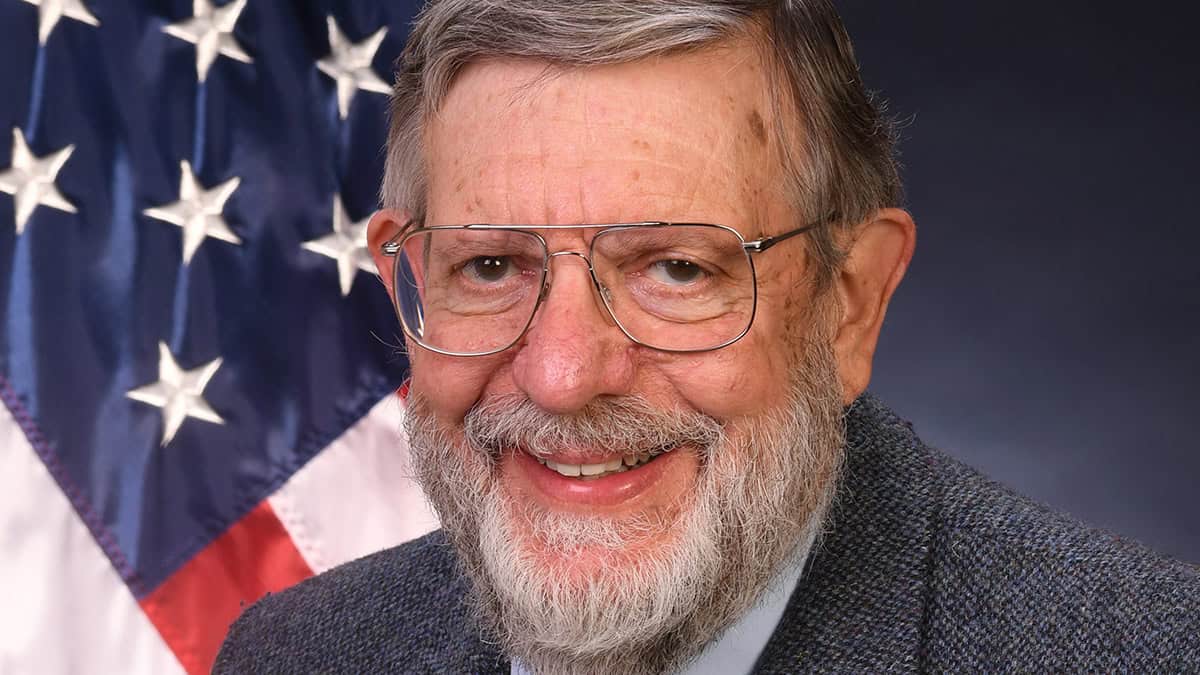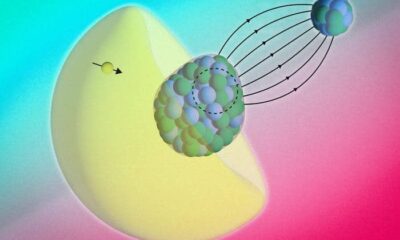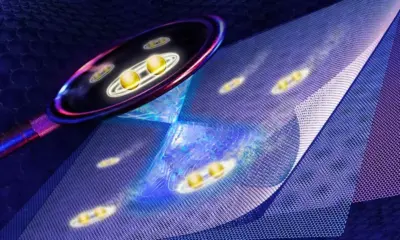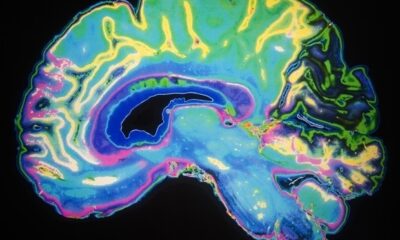Science
William Phillips Explores the Fascinating World of Quantum Physics

William Phillips, a prominent figure in quantum physics, has dedicated his career to exploring the intriguing and often perplexing world of quantum mechanics. After graduating from Juniata College in Pennsylvania in 1970, he completed his PhD at the Massachusetts Institute of Technology (MIT) under the guidance of Dan Kleppner. His early research focused on measuring the magnetic moment of the proton in water, laying the groundwork for a life immersed in quantum exploration.
In 1978, Phillips joined the National Bureau of Standards, now known as the National Institute of Standards and Technology (NIST) in Gaithersburg, Maryland. He shared the 1997 Nobel Prize for Physics with Steven Chu and Claude Cohen-Tannoudji for their groundbreaking work on laser cooling. This technique employs precisely tuned laser beams to slow atoms, bringing them to temperatures just above absolute zero. The implications of this work extend to the development of more accurate atomic clocks and the creation of Bose-Einstein condensates, a unique state of matter where particles exist in the same quantum state.
To celebrate the International Year of Quantum Science and Technology, Phillips recently discussed his journey in physics and the peculiarities of quantum mechanics in an interview with Margaret Harris, editor at Physics World.
Early Inspirations and Discoveries
Phillips’ fascination with quantum physics began during his undergraduate studies. A professor invited him to engage in research on electron spin resonance, where he explored the behavior of unpaired spins in solid samples. This experience sparked his interest in the unusual properties of quantum mechanics.
Following his undergraduate work, he spent a semester at Argonne National Laboratory, contributing to electron spin resonance research. Phillips’ subsequent PhD at MIT introduced him to tuneable lasers, vital tools for investigating atomic-level phenomena.
Reflecting on his career, Phillips noted the inherent strangeness of quantum mechanics. He described the concept of entanglement, where two particles can instantaneously affect each other’s states, regardless of distance. He acknowledged the difficulty in fully grasping the implications of such phenomena, stating, “I didn’t understand how deliciously weird nature is because of quantum mechanics.”
Revolutionizing Precision and Information
Among the quantum principles that have significantly influenced Phillips’ work is superposition, which has allowed for the creation of highly precise atomic clocks. When he arrived at NIST, the best clock was accurate to one part in 10^13. Advances in laser cooling and trapping now enable researchers to resolve differences of less than one millimeter in clock measurements, a remarkable feat in precision timekeeping.
Currently, Phillips and his colleagues at NIST are at the forefront of developing next-generation atomic clocks that utilize atoms trapped in optical lattices. These clocks surpass the accuracy of traditional caesium clocks, achieving precision better than one part in 10^18. Such advancements not only redefine the second but also open new avenues for quantum information processing.
Phillips highlighted the transformative potential of quantum computing, particularly through Shor’s algorithm, which allows for the rapid factoring of large numbers. This capability poses a significant challenge to current encryption methods, as it could enable the decryption of sensitive information, such as credit card numbers. While practical quantum computers capable of such feats are not yet available, Phillips underscored the importance of ongoing research in this area.
The Future of Quantum Physics
As Phillips looks to the future, he remains optimistic about the potential applications of quantum computing. He envisions a system that could efficiently tackle complex problems, such as those found in quantum magnetism, which is currently infeasible for classical computers.
The ongoing development of quantum processors, utilizing various types of qubits, remains a topic of interest. Phillips believes that a hybrid approach, integrating different platforms for computation and storage, might ultimately yield the most effective quantum computers.
Despite the challenges ahead, Phillips is excited about the prospects of quantum physics. He noted the significance of serendipity in scientific research, emphasizing that unexpected discoveries often lead to groundbreaking advancements.
As he reflects on his illustrious career, Phillips expresses pride in pivotal discoveries, including sub-Doppler laser cooling and the development of Bose-Einstein condensates. He underscores that quantum mechanics, regarded as the most important discovery of 20th-century physics, has profoundly influenced modern technology, including the ubiquitous mobile phones of today.
This year, as the world observes the International Year of Quantum Science and Technology, Phillips’ contributions to the field serve as a reminder of the excitement and potential inherent in the study of quantum physics. The journey continues, with new discoveries on the horizon that may further illuminate the “deliciously weird” nature of the universe.
-

 World3 days ago
World3 days agoCoronation Street’s Shocking Murder Twist Reveals Family Secrets
-

 Entertainment4 months ago
Entertainment4 months agoKate Garraway Sells £2 Million Home Amid Financial Struggles
-

 Entertainment3 months ago
Entertainment3 months agoAnn Ming Reflects on ITV’s ‘I Fought the Law’ Drama
-

 Health3 months ago
Health3 months agoKatie Price Faces New Health Concerns After Cancer Symptoms Resurface
-

 Entertainment3 weeks ago
Entertainment3 weeks agoCoronation Street Fans React as Todd Faces Heartbreaking Choice
-

 World4 weeks ago
World4 weeks agoBailey Announces Heartbreaking Split from Rebecca After Reunion
-

 Entertainment6 days ago
Entertainment6 days agoTwo Stars Evicted from I’m A Celebrity Just Days Before Finale
-

 World6 days ago
World6 days agoKevin Sinfield Exceeds Fundraising Goal Ahead of Final Marathons
-

 Entertainment3 months ago
Entertainment3 months agoCoronation Street’s Carl Webster Faces Trouble with New Affairs
-

 Entertainment3 months ago
Entertainment3 months agoWhere is Tinder Swindler Simon Leviev? Latest Updates Revealed
-

 Entertainment4 months ago
Entertainment4 months agoMarkiplier Addresses AI Controversy During Livestream Response
-

 Science2 months ago
Science2 months agoBrian Cox Addresses Claims of Alien Probe in 3I/ATLAS Discovery





















